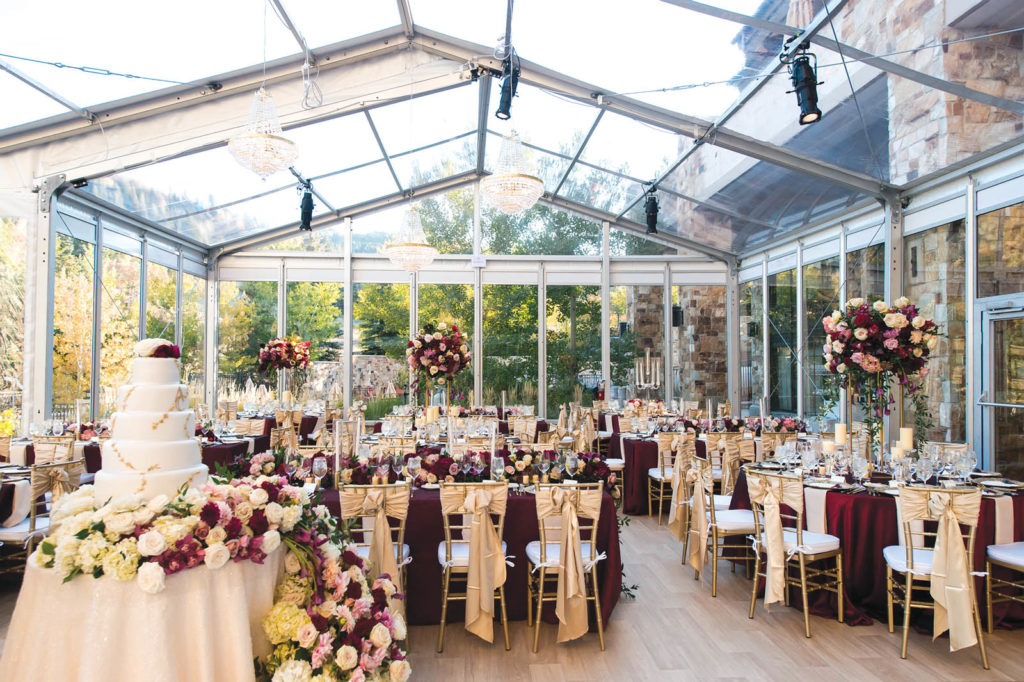
Can you count the number of moving parts involved in planning and staging a successful and memorable wedding? Maybe not, but you can certainly count how many need to go wrong to spoil the day—and it’s not very many.
A critical component to making sure that doesn’t happen is the relationship between the companies that have been hired to stage the event, most notably the event planner and the tent rental company. The couple getting married are not experts in this process, and it’s up to the rental company and the event planners to make sure their interests are top of mind, and that they work well together.
Some event planners, like Michelle Leo of Michelle Leo Events in Salt Lake City, Utah, which specializes in local and destination events, know exactly what they are looking for in a rental company partner.
“We look for partners who are dependable,” Leo says. “They follow through with their commitments and do what they say they’re going to do. And they follow through in a timely manner—I don’t have to wait a month for a quote. Their teams show up on event day and do a great job and they don’t put us behind on schedule.”

No hand-holding
“I prefer to work with vendors that don’t require hand-holding,” she adds. “If we tell a vendor what we need and they follow through, it’s going to be a good working relationship.”
At other times, often depending on the experience of the companies, roles need to be defined. It can vary from company to company and wedding to wedding, but the objective is for everyone to be on the same page.
“Wedding planners tend to be the liaison for the client,” says Jack Hawkins Jr., president of A Classic Party Rental in Indianapolis, Ind. “A majority of the wedding planners in Indianapolis work directly with our representatives on changes, updates and delivery/pickup for a specific event. The wedding planner oversees the entire wedding process, from hiring all vendors, schedules, organization, payments and day-of needs/issues.”
“When we work with a very experienced event planner, typically they will take the reins,” explains Duncan Brockbank, director of sales at Diamond Event & Tent in Salt Lake City. “They will let us know what they need in terms of rental equipment, when they need it, and how much labor they want us to do in regard to setting up tables, chairs and other rented items. Typically with an experienced planner, they’ll say, ‘Here’s what I need, get me the price, tell me what you can do, here’s the timeline, can you meet it?’ and we follow their lead.
“We also get customers that want our opinions, which we are always happy to provide,” Brockbank adds. “But it can be a fine line. People will say, ‘We really need you guys to go in and set this and set that; we’ll have this particular furniture there and we need you to put it in place for us.’ We often have to remind them that we are only providing our rentals. We will set up certain pieces of our equipment, but we are not a full-scale production company.”
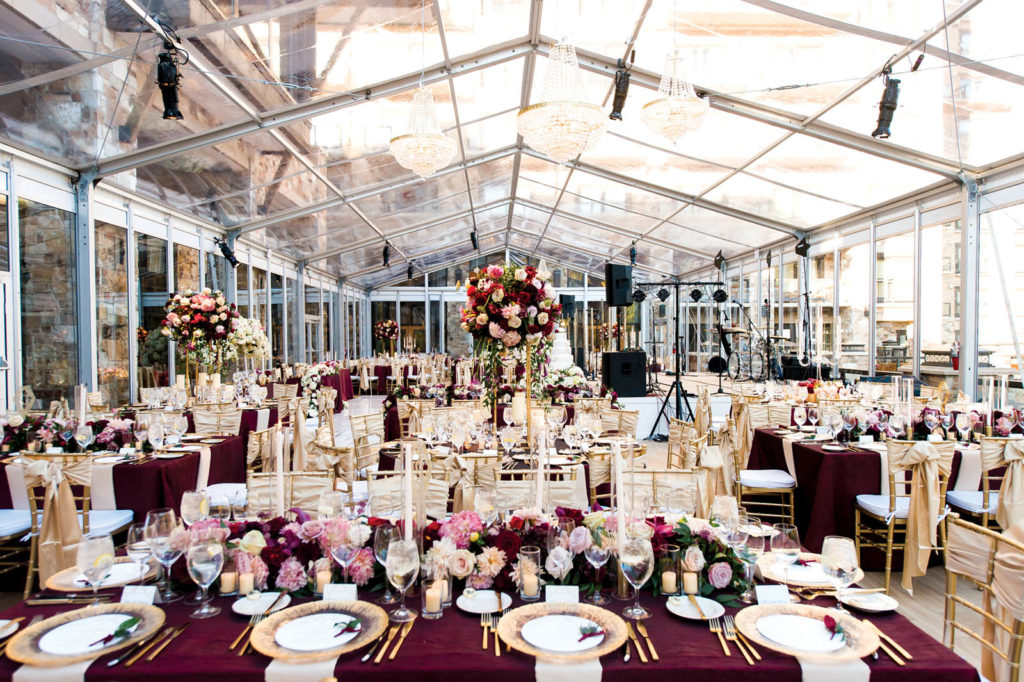
Working with less experienced planners
If his company is working with less experienced event planners, expectations can change, says Brockbank.
“Whereas more experienced planners tend to know exactly what they are wanting and what is possible, less experienced planners often rely on our staff’s knowledge and experience to walk them through the process,” he says. “We can tell them, for example, what size tent will fit in the available space, how many chairs will fit under that tent, and even offer lighting and layout suggestions.”
“In our experience, event planners need different levels of assistance with logistics, like developing a schedule for installations,” says Elizabeth Wilson, president of All Occasions Event Rental in Cincinnati, Ohio. “We’re viewed as having expertise due to our maturity as a company and in the market. We’ve been in business for 43 years.”
But that can be a “double-edged sword,” adds Wilson. Sometimes the client can expect the rental company to provide planning services that may be more appropriate from the event planner.
“We can give our input from the beginning, which can be helpful in most cases, but it takes extra time and we aren’t always able to monetize that extra time. Still, we look at it as cheap insurance if we can help steer from the beginning as it ultimately helps us be more efficient when the time comes for installation.”
It is appropriate, for example, for the rental company to be “very clear and transparent from the very beginning if we think something they are asking for is not a good solution for their event, and explain why,” says Wilson.
“We would rather be the ‘bad guy’ early in the planning process rather than the day of the event,” she says. “For example, if we see that the proposed site is very low lying, and we think it’s likely to be very muddy or wet, that’s something we’re going to bring up—even if that’s something they might not want to hear. We like to discuss those types of challenges up front, and I think our clients do respect that we will watch out for their interests and try to see some of those things that could become an issue.”
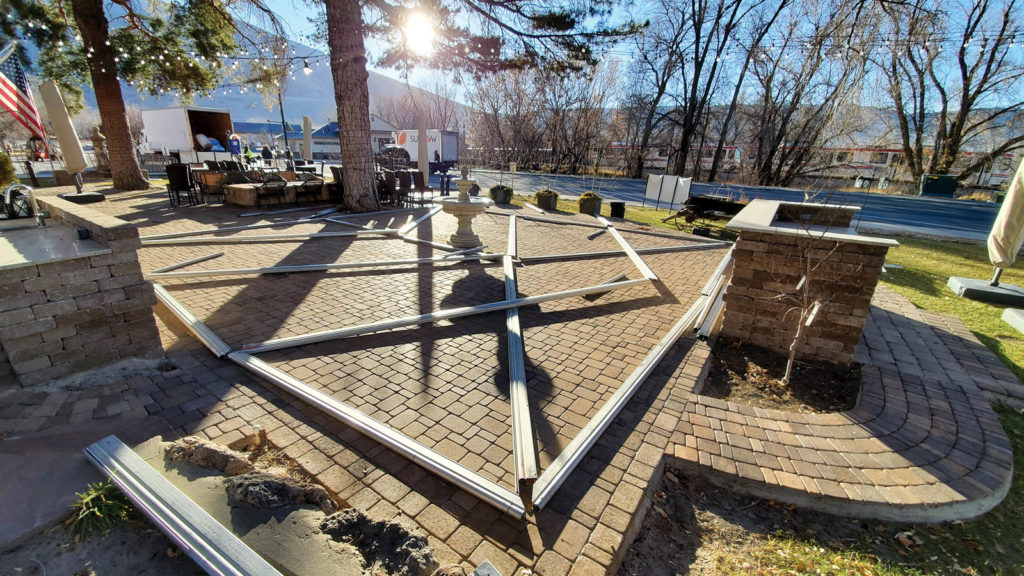
Limited rental choices
One of the issues Leo faces in working with the rental companies is limited choices. “The biggest challenge is not having a lot of variety to choose from at the local rental companies,” she says. “People see these really amazing rentals that come out of Los Angeles and New York and Las Vegas and don’t realize we don’t always have local access to those specific items here in Utah. Our options are somewhat limited.”
In addition, she says, “Popular rental items get tired really quickly. Certain items are in a constant rotation, coming in and going out, and the wear and tear shows. I’ve executed events where the tables show up dirty and I say, ‘I wouldn’t eat off that table.’ It probably got picked up the previous night, put in a truck and delivered to us that morning. When stuff like this happens, I have conversations with my sales reps—it’s not acceptable.”
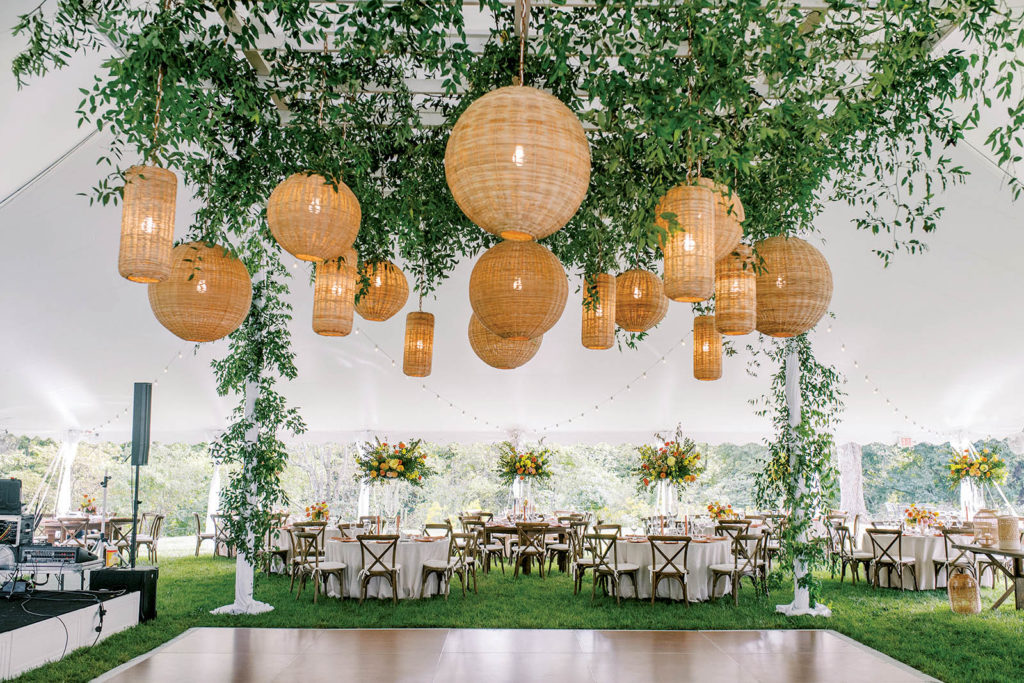
It’s important for planners to be in contact with their rental companies to solve prominent issues, she says. “We went to a meeting with a vendor team I work with frequently and we chatted for about three hours regarding what new rentals to bring in based on what clients are asking me for, what looks are trending in industry publications and social media, and what local items need to be retired.
“I appreciate the opportunity to have these types of conversations with my vendors, and I know they value my feedback,” adds Leo. “We’re one of the top planners and event designers in Utah, and our opinions (and the demands of our clients) carry a lot of weight with the vendors we choose to do business with.”
In the end, the consensus is that communication is the most important component in the relationship between tent rental companies and event planners.
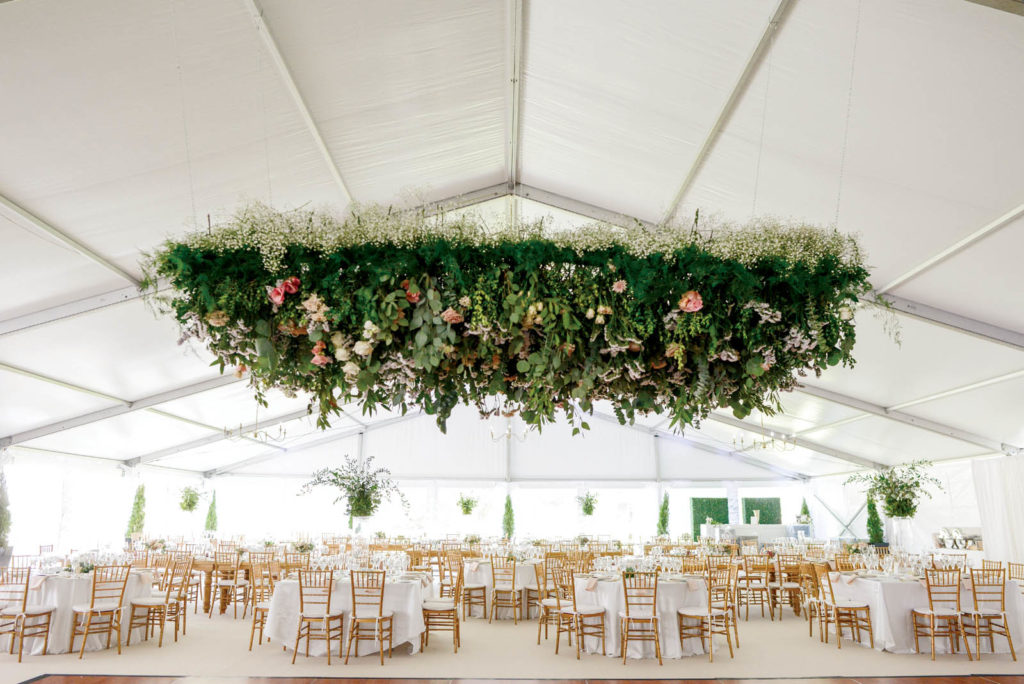
“The key is communication—clear communication, from the very beginning,” says Brockbank. “A rental company should not overpromise. You have to be realistic about what you can and cannot do and convey that message very clearly to the planner. The planner is counting on us to follow through on our commitments. They’re going to convey our plan to their client—the end customer paying for the event.
“Take time with your planner to really flesh out the details of the event,” he adds. “Most experienced planners will demand this of you anyway. When it comes down to pulling off an event, executing the details matters tremendously.”
“Communication is it!” says Hawkins. “There can never be too much communication. We want to know all the details of the wedding to make sure our team is prompt and taking care of all the needs of the client. The opposite is true as well—the wedding planner needs to be in the know to easily make schedules and organize the day.”
Jeff Moravec is a freelance writer based in Brooklyn Park, Minn.
SIDEBAR: How one rental company sees its role
Need a nice, concise definition of what a rental company provides for a wedding? We asked Jack Hawkins Jr., president of A Classic Party Rental in Indianapolis, Ind., for his thoughts:
“We’re a full-service event rental company. When hired by a future bride and groom, we have a dedicated representative of our company that walks the couple through the entire rental process. A tent rental company must focus on all the potential hazards to ensure a successful event.
“We start by doing a site visit to ensure the vision the client has of a specific style of tent will work in the space provided. We measure the site to ensure the tent fits and then determine which method of anchoring will be best for that specific site. Once the type of anchoring is determined, we follow all local laws on ballasting and calling in underground utilities. Once we have all the preliminary work completed, we shift our focus to the actual event. We help the client by providing a layout of the tent with a diagram of all rental equipment for placement and flow of their special day.
“If you have been a part of someone’s special day or even your own, we know from experience the last thing a client wants to worry about on their wedding day is setting up/tearing down equipment. We can help the client by offering labor services to help ensure a smooth and special day!”
 TEXTILES.ORG
TEXTILES.ORG


